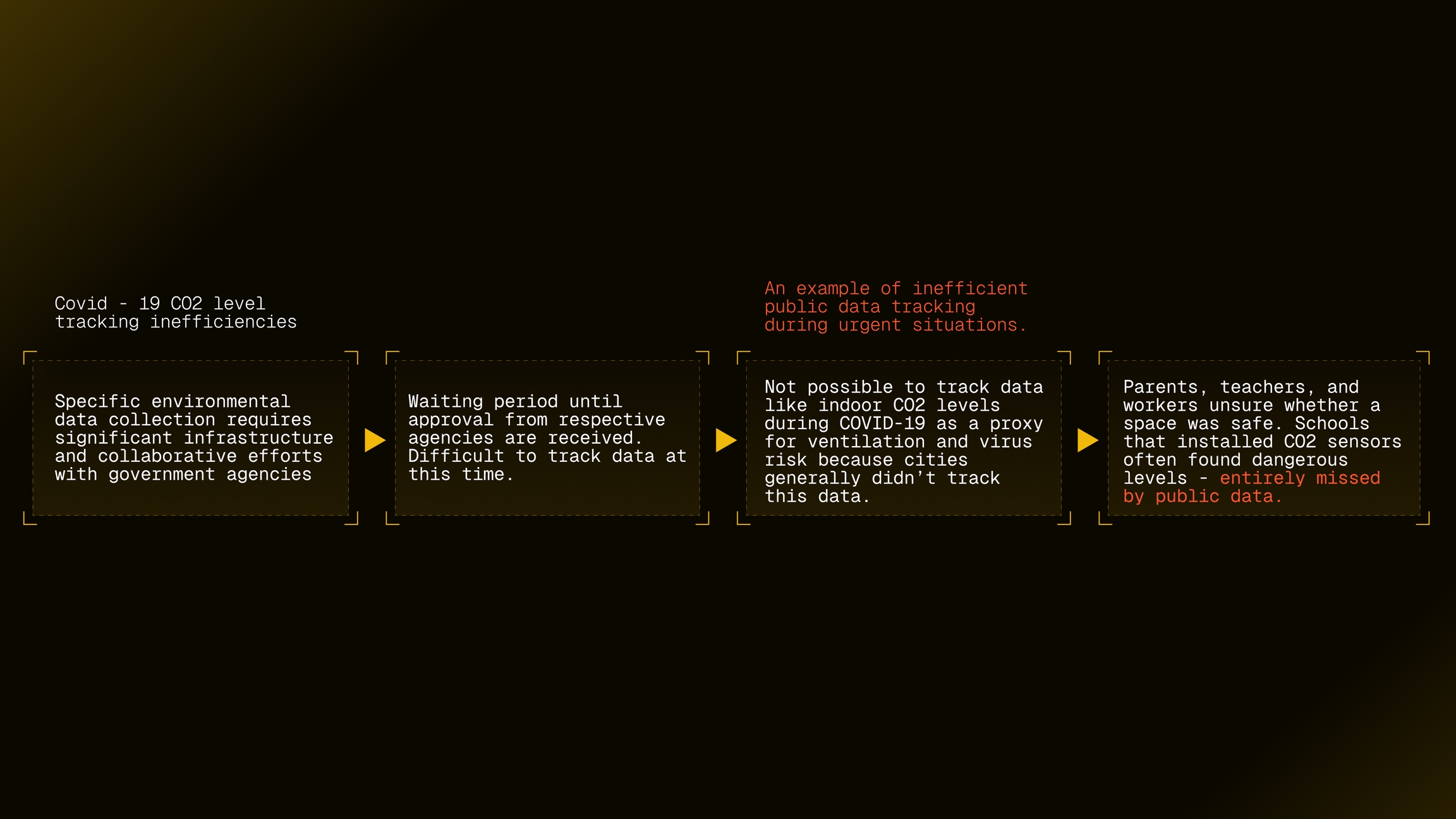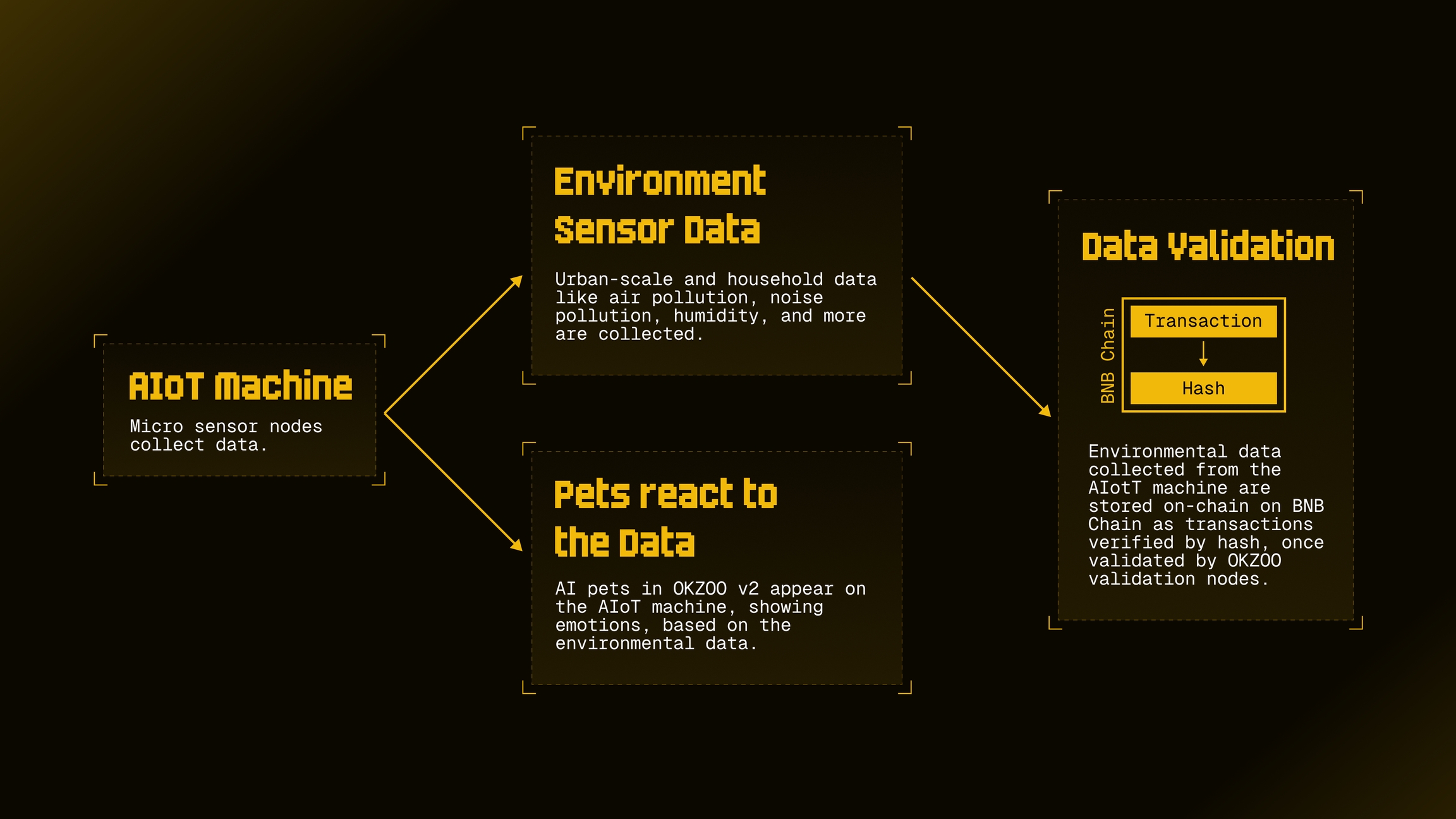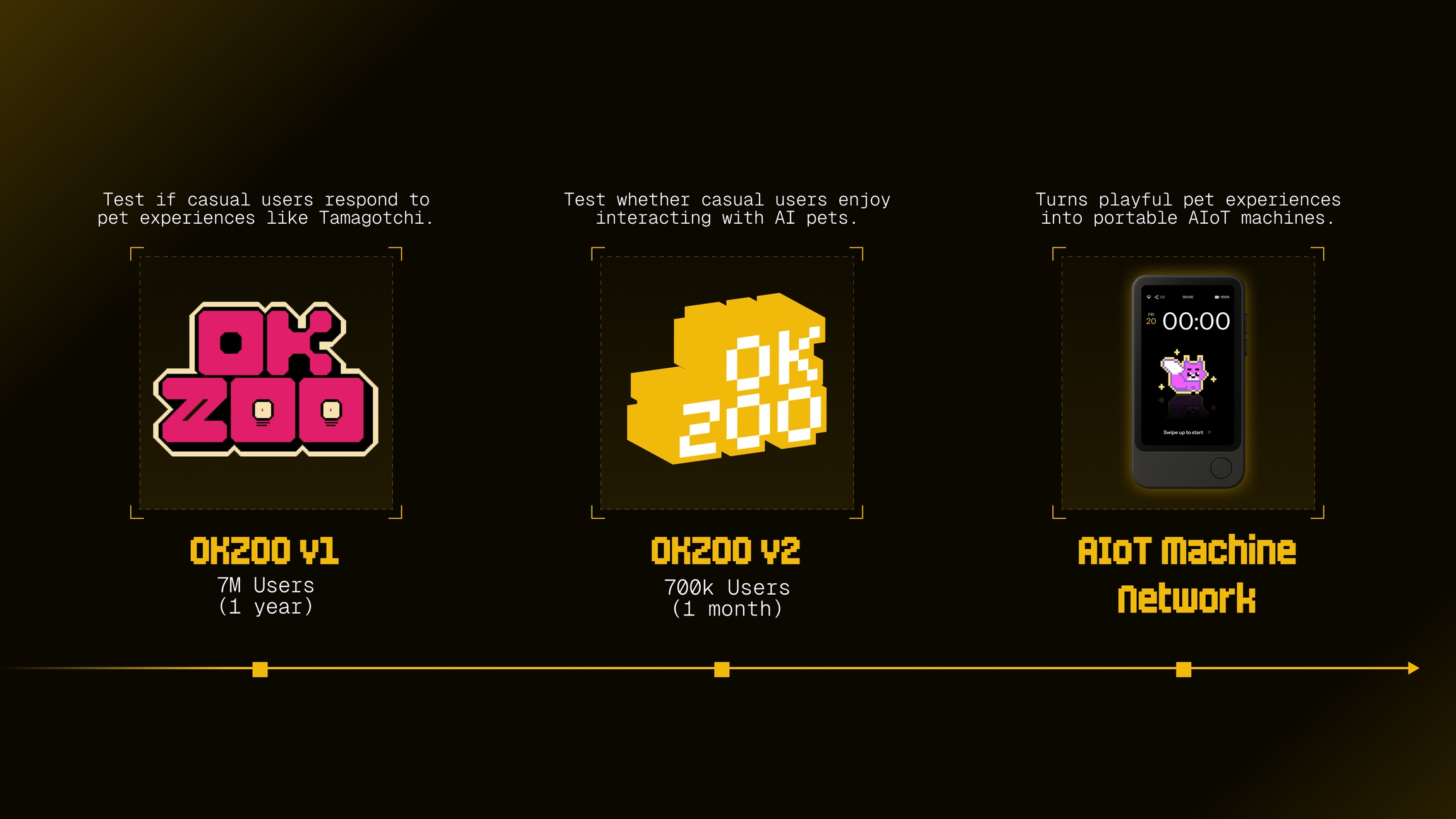Primer
OKZOO: A Decentralized AIoT Machine Network for Real-World Environmental Data Collection and Incentivization
Abstract. OKZOO introduces the world’s first urban-scale and street-level decentralized environmental data network by designing and developing a decentralized AI infrastructure that serves as the backbone of an interconnected network of physical machines that empower users to contribute both external and household environmental data through handheld devices. It creates a mass-scale web of real-world environmental data that can empower innovative AI environmental systems. We introduce a novel concept named “AIoT,” which blends AI and decentralized Internet of Things (DeIoT), distributing portable AIoT machines that enable users to upload data and earn direct peer-to-peer incentives. This creates a grassroots network of physical infrastructure operated by a distributed community, offering key advantages that include but are not limited to: contribution of hardware to earn rewards, lowering capital needs, rapid scaling, and the construction of a variety of applications that leverage environmental data received from micro sensor nodes across the AIoT network to optimize for the personal necessities of users.
1. Problem
How urban-scale environmental data processing can be vulnerable to subjective data reporting.
Environmental data processing on an urban scale presents severe challenges due to two major factors. First, the centralized collection of data–especially when outsourced to a third party data collector–is virtually impossible to verify as the data itself becomes vulnerable to a single point of error. Second, the observants and recipients of the data have to trust the party that distributes data collected from centralized third parties, which presents reliability concerns for the data output. The data provenance becomes an issue when it is in the interest of the data provider to frame the data to fit into their pre-existing evaluative frameworks of various environmental situations rather than presenting raw data as is in a presentable manner.

For instance, say a city struggles with severe pollution levels that continuously remain significantly higher than average pollution levels across other metropolitan cities in the region. A third party agency that is contracted to evaluate pollution levels may feel inclined to adjust the data to support skewed evaluations to support subjective claims.
Data concerning natural disasters, air pollution, noise pollution, urban heat levels, and many more are particularly vulnerable to higher levels of subjective data reporting due to single points of failure in data processing and distribution, which poses a serious network problem especially if a large number of applications leverage the said data to provide related information to their user base.
2. The Decentralized AIoT Machine Network For Smarter Environments
AIoT machines with micro sensor nodes forming an environmental machine network.
We solve the subjectivity complication of environmental data processing by creating micro sensor node devices called AIoT machines and establishing a robust network of machines to gather, validate, and distribute environmental data to the masses.

OK-mini, our micro sensor node AIoT device, detects a wide range of environmental changes or irregularities such as air quality, noise pollution, safe zones, weather, humidity, and more, for both external and household environments. Every device comes with an AI pet that adjusts its behaviors based on the environmental changes it detects, making it more engaging and entertaining for users to collect data.
Basically, the P-mini AIoT device turns playful pet devices into smart, useful, decentralized networks of sensors. Essentially, every device is a mini environmental oracle. By living in–eventually–millions of real-world homes and thousands of external environments (cities), the AIoT devices create an unmatched, bottom-up sensor grid for environmental insights and behavioral modeling.
Once collected by the device, the household environment and street-level trend data are validated and stored on-chain by validator machines on the OKZOO network, powering unique AI systems and apps, allowing users to earn in the process.

Similarly with DePin (Decentralized Physical Infrastructure Network), incentives are important to run a grassroots network of physical devices for data collection. However, incentives are not limited to monetary incentives. Albeit their importance, monetary incentives is simply the foundation. In order for any infrastructure network to be sustainable, it must be engaging, entertaining, and casually enjoyable for device owners to continuously and sustainably provide real-world environmental data.
DePin can be complex and boring. OKZOO’s AIoT network enhances it by incentivizing users not just from a monetary perspective but from an entertainment perspective as well. OK-mini integrates virtual pets within every device that behave based on the user’s environmental surroundings. Considering that casual pet experience providers like Tamagotchi have been immensely popular for decades, entertaining experiences within the device will aid the long-term sustainability of the AIoT machine network.
3. History of OKZOO
OKZOO’s story from playful pet experiences, to AI pets, and to AIoT machine network.
Despite designing and building the AIoT infrastructure since early 2024, OKZOO released Tamagotchi-like pet experience simulators first in the form of OKZOO V1 and V2 to test whether casual users still respond well to playful pet apps many decades after Tamagotchi first launched. We wanted to ensure that pet experience can enhance the AIoT machine user experience by making the process a tad bit lighter, more engaging, and entertaining.
Once we saw an influx of 5 million users in OKZOO V1, we then tested AI pets with OKZOO V2 and see if casual users respond positively to AI-based pets that understand the behavior of users over time and communicate with users based on the knowledge the pets acquire. OKZOO V2 was also a success, seeing 700k users in less than a month of launching.
With positive market confirmation, OKZOO introduced the comprehensive and ambitious vision of AIoT machine network that turns playful pet experiences into portable AIoT devices that provide crucial urban-scale environmental data to power innovative AI systems and consumer applications.
 The competitive edge of OK-mini machines is the compact design of sensor models within the device combined with battle-tested AI pet experiences loved by 12 million users of OKZOO V1 and V2 that enhance the experience of OK-mini in a long-term and sustainable way.
The competitive edge of OK-mini machines is the compact design of sensor models within the device combined with battle-tested AI pet experiences loved by 12 million users of OKZOO V1 and V2 that enhance the experience of OK-mini in a long-term and sustainable way.